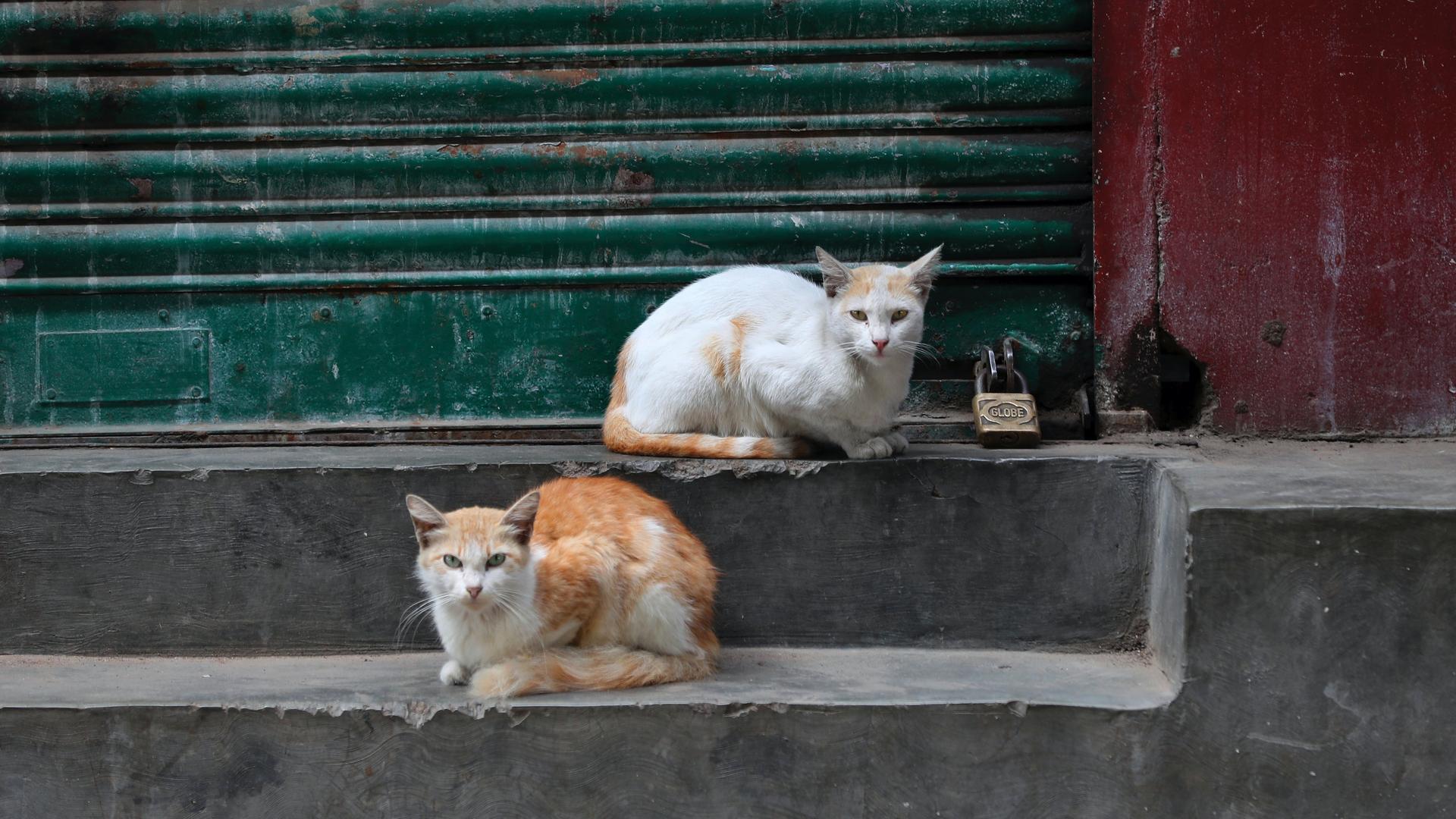With reduced flights and travel bans that make reunions difficult, the pandemic has truly broken up many families around the world.
Pets have also been separated from their human best friends.
Gizmo and Gigi belong to owner Robyn Schindel and her husband, who rescued the two cats from Shanghai streets 12 years ago. They promised to give them a forever home.
Related: EU nations relax rules for cross-border couples separated during the pandemic
The two kitties lived a comfortable life with their owners. They were always around for a cuddle. But everything changed this February when the Schindel family went to Canada on a vacation over the Chinese New Year break.
“It was supposed to be a two-week holiday. And then once we got here, really quickly, our flights back were canceled and refunded. So we were stuck here [in Canada],” she says.
Days of waiting turned into weeks and then months. Eventually, the Schindels made a tough decision to pack up their life in Shanghai and asked friends to help them ship everything to Vancouver.
But Gizmo and Gigi had to be left behind.
‘They’re part of your family’
The Schindel cats are two of more than 1,000 pets stranded across the globe that owners are trying to retrieve, according to Reuters. Others are rehomed because their owners cannot afford the expenses of shipping pets across the globe.
The situation is improving as airlines slowly increase flights and some nations reopen borders. But transporting pets during this time is still supremely challenging. Schindel is well aware of the restrictions and exorbitant costs.
“But at the same time, they’re part of your family. You’re not just going to dump them,” she says.
Related: Spotify creates a podcast to save your pup from loneliness
While the Schindels were in Canada pining for their cats in China, Fu Jingyi was in Shanghai, pining for her cat in the US. She’s a grad student there and early this year brought a kitten named Cookie over from China. She expected to be in the US for several years and wanted a companion.
“She’s such a sweet-tempered cat, and so cute. From the day she came home, she was friendly and easygoing,” says Fu.
But in early June, amid all the uncertainty of the pandemic and her housing situation, Fu made a split-second decision to return to Shanghai and find a job. Her parents paid more than $10,000 for her economy-class ticket. But the only flight she could get didn’t allow cats. She now pays someone to take care of Cookie in the US.
“The hardest part is that everything costs so much. I’m under a lot of financial pressure now. It’s going to cost me thousands of dollars to get her back,” says Fu.
‘Just going to wait and see’
Fu is heartbroken as she considers her options. For now, she can only look at the videos her friend sends to her and wait for borders to reopen.
She says: “Right now, I’m just going to wait and see. I don’t want to just give her up.”
Related: ‘Our Wild Calling’: Connecting with animals transforms lives
In June, it seemed the Schindels had found a way to get their cats back. Along with other expatriates locked out of China, they paid for a charter flight intended to transport more than 100 cats and dogs from Shanghai to North America.
Unfortunately, the plan fell through. But last week, after seven months of separation, Gizmo and Gigi were able to catch a flight to Vancouver and reunite with the Schindels.
Meanwhile, hundreds of other pets remain in limbo, as their owners try to find a way to get them home.
The story you just read is accessible and free to all because thousands of listeners and readers contribute to our nonprofit newsroom. We go deep to bring you the human-centered international reporting that you know you can trust. To do this work and to do it well, we rely on the support of our listeners. If you appreciated our coverage this year, if there was a story that made you pause or a song that moved you, would you consider making a gift to sustain our work through 2024 and beyond?
